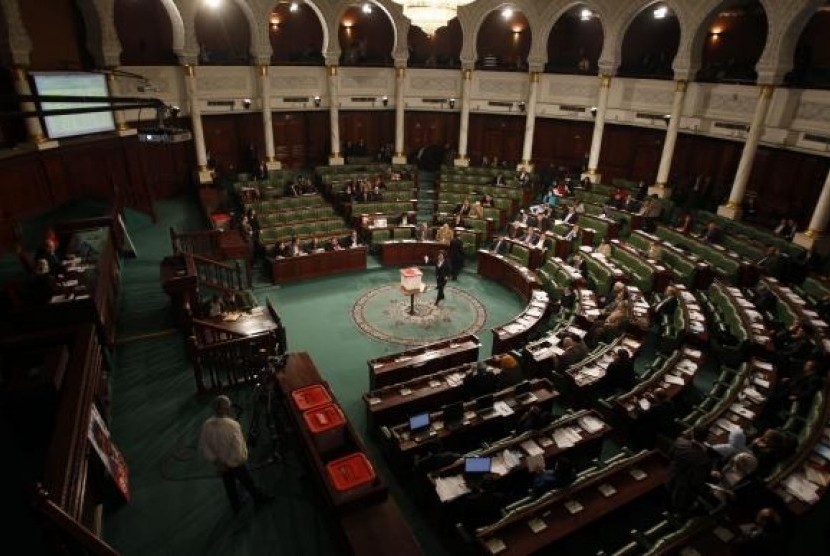REPUBLIKA.CO.ID, TUNIS - Tunisia's national assembly approved the final articles of the country's new constitution on Thursday, three years after their uprising against Zine el-Abidine Ben Ali inspired a wave of Arab revolts. the chapter is seen as a compromise between Islamist and secular leaders in the country.
Tunisia's new charter, which the assembly will likely vote on Saturday to approve fully, is widely praised for its inclusiveness, among countries who toppled long-standing leaders in their own 2011 "Arab Spring" uprisings.
"Finally, we have reached this moment," Assembly President Mustapha Ben Jaafar said as deputies chanted the national anthem in the assembly chamber in Tunis.
Following their 2011 "Jasmine Revolution", Tunisia is close to full democracy after months of acrimony gave way to a compromise between ruling Islamists and secular leaders that contrasts sharply with upheaval in Libya and Egypt.
Tunisia's ruling moderate Islamist party Ennahda stepped down in an agreement with opponents to break the deadlock and make way for a technocrat administration to govern until new presidential elections later this year.
New premier, Mehdi Jomaa, a former minister, has promised to appoint a non-political cabinet once the constitution is approved. But his government must decide on economic reforms and tackle the threat of Islamist militants. A newly appointed election committee has yet to decide on a date for the presidential vote.
Delays
"On Saturday, we'll have a session to approve the constitution and then Monday, another festive session to sign the constitution of the revolution," said Ennahda member Badredine Abd Kefi.
Mostly applauded for its modernity, the new constitution had been delayed by political deadlock as Islamists and opposition parties argued over the role of Islam in one of the most secular Arab countries.
Tunisia's new charter and the small North African country's compromise between Islamist and secular leaders is seen as an example of political transition after the 2011 revolts.
Egypt is in turmoil after its own elected President Mohamed Mursi was deposed by the army and jailed and his Muslim Brotherhood declared a terrorist organization. Egyptians approved their new constitution this month, advancing a transition plan from army chief General Abdel Fattah al-Sisi after he ousted Mursi in July following mass protests against his rule.
Two years after Muammar Gaddafi's fall, Libya is still struggling, its constitution unwritten, its assembly deadlocked between Islamist and secular parties, and heavily-armed former rebels far from under government control.


